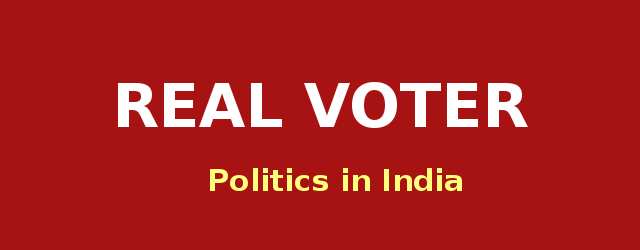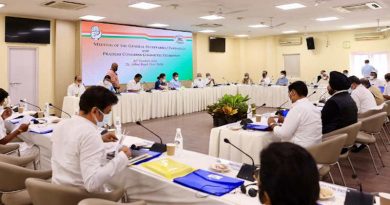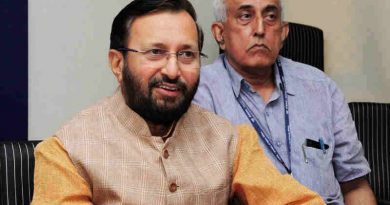How India Is a Defective Democracy – Part 2
Today, it’s observed that the democratic systems in different economies of the world are crumbling and there is an increasing degree of unrest among the people in democratic nations. India is one such nation.
By Rakesh Raman

To discuss the defects in the Indian democracy, RMN News Service of RMN Company has started a three-part Defective Democracy editorial series. This is the second article in this initiative under our REAL VOTER section that covers political developments in India. (Read the first article)
Today, it’s observed that the democratic systems in different economies of the world are crumbling and there is an increasing degree of unrest among the people in democratic nations.
With over 1.2 billion people, India is the largest country in the world that is struggling to protect the democratic fiber in the nation, because the country is facing a severe leadership crisis. There is a need to radically change the electoral system and the way government services are delivered to the citizens.
As there is no competent leader in India to spearhead this change, the democratic values are wearing away from the systems of the country’s governance. India can’t be called a democratic country anymore.
In the Defective Democracy series, here we discuss more defects in the Indian democracy.
Incompetent Candidates
The post-independence era in India (1947 – 2014) can be categorized into two phases: Transition and Development. In the transition phase, the leaders who directly participated in the freedom struggle took the reigns in their hands and anointed Jawaharlal Nehru as India’s first Prime Minister.
Nehru handled the country from 1947 to 1964. He and his colleagues in the government were abrupt in delivering the governance to the people of India.
That means, instead of creating tailor-made administrative processes for the people of the country, they simply adopted the British systems, which were never conducive to growth. During 17 years of his rule, Nehru could not develop India-specific policies and plans for growth.
In the post-Nehru period, or the development phase, the development was supposed to happen in the country. But for all political leaders in this phase, politics became a lucrative trade. People who wanted to make quick money or grab power started entering politics. They never had the will to serve the people.
As a result, majority of the people who adopted politics as a profession during the past 50 years are uneducated, goons, or from the political families. There is another category of passive politicians who came from other professions in which they failed or came after retirement. They are like film actors, sports persons, businessmen, civil servants, journalists, and so on.
As most of them are illiterate or incompetent to run a democratic system efficiently, they can’t think about the welfare of the people. As such politicians are also ill-mannered, they misbehave with each other openly.
How can you expect them to be a part of the democratic system that is on the verge of collapse for want of forward-looking approach?
Unskilled Ministers
In today’s competitive world, governments are supposed to be run like progressive corporations. Each and every department of the government must be in professional and competent hands.
The ministers heading each government department should be qualified and should have demonstrable skills to handle a specific domain like finance, education, law, HR, technology, foreign affairs, defense, and so on.
However, in the current democratic system, you need to just win an election by fair means or foul to get eligibility to become a minister while there is no minimum qualification required to contest an election.
Even the new breed of dynastic politicians, who come with purchased and frivolous academic degrees from local and foreign universities, are unemployable for any professional job.
But because of their lineage, first they get easy entry into politics. Then they easily become ministers. You can’t expect good governance from such incompetent heads of departments.
In a professional environment, incompetent bosses are kicked out, but in Indian government, there is no accountability for ministers. And even the performance parameters are not specified for them. They work in a totally free-wheeling manner.
Result: India stands at the bottom of the pyramid in the world in all professional fields – such as, education, sports, science, technology, economics, films, and so.
Worse, a whopping 20% of the world’s 4 billion poor who live on less than US$ 2.50 per day, are in India. And India’s human development index, which indicates the level of skills in a country, is at a dismal rank of 136 in the world.
If you analyze the situation closely, you will find that India’s sorry plight is persisting because of the flawed democratic system in India – which nurtures incompetence and kills talent – beginning with the elections.
India will never be able to grow with this system under any political party and will remain a country of the poor and downtrodden for the next many centuries. Unfortunate but true.
By Rakesh Raman, the managing editor of RMN Company.
You also can read: More Articles by the RMN Editor, Rakesh Raman





